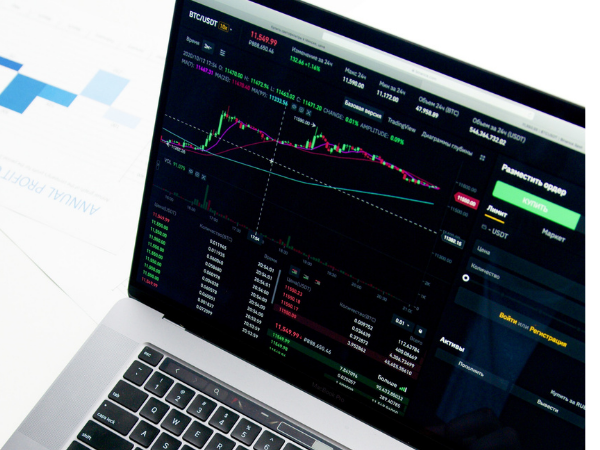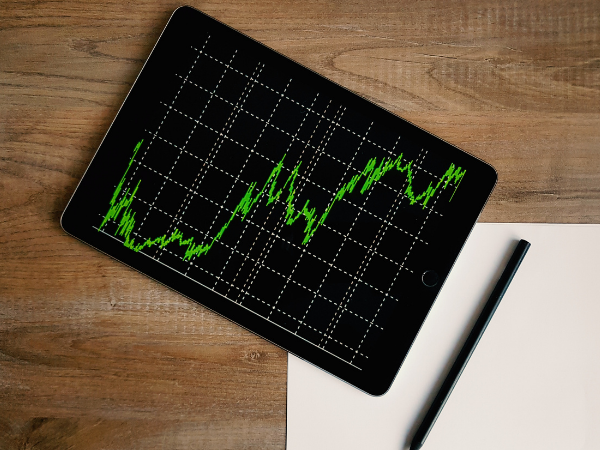The best stock screeners: How they help investors
Stock trading and investing takes time and money that only worthwhile assets deserve. These free and paid tools can help you build your portfolio! If you’re having a hard time finding new investments, the best stock screeners can help.
We’ll start with our recommendations for the best stock screeners on the internet. Then, we’ll explain how these online tools can enhance your investing and trading experience. Also, we’ll discuss what they can’t do so you understand the tools better.
You may choose from hundreds of stocks and other assets, and there’s no way you’ll invest in all of them. Stock screeners sift through them, leaving only the ones that suit your needs. The best ones help you choose among them by providing reliable market data!
#1. TD Ameritrade

The company is one of the oldest trading platforms right now. It has stood the test of time with its reliable, real-time data. That’s why the platform is well-suited for day traders.
We noted the TD Ameritrade mobile app as one of the best for investments. It was at the bottom of the list since it was too complicated for new investors.
If you’re checking for the best stock screeners, though, you likely have experience already. That’s why we put TD Ameritrade’s stock screener on top of this list.
The platform offers a selection of fundamental and technical screeners for free. Click either of them to open the options. Then, you may select a stock based on various metrics.
It surprisingly has several tools that would be considered as “advanced features,” including Stock Hacker and paperMoney. The former lets you filter and scan stocks in real-time.
The latter allows people to practice trading. It provides fake money so you can buy or sell simulated stocks. It’s only available for registered users, though.
However, there’s no reason why you shouldn’t create an account. Unregistered folks only get stock snapshots. They’re quite detailed but not enough for more discerning investors.
After, you’re ready to use the best stock screener! It doesn’t require a minimum funding amount. Unless you want to trade options, that’s all you need for your new TD Ameritrade account.
#2. TradingView
You may have one issue with TD Ameritrade, though: the need for a user-friendly interface. While the abundant features are great, you might want a platform that looks simpler.
Thankfully, TradingView’s stock screener has what you need. It ditches the wordy and murky TD interface with a streamlined look. This could help you navigate the platform easier.
It has similar features to TD Ameritrade. You may select from premade categories on the site. Or you may create ones yourself. It also offers paper trading and data export.
TradingView has one unique and nifty feature, though: the Ideas tab. Click on a stock, and you’ll see it as one of the available options. Select that, and you’ll see trading ideas from other users.
This truly makes TradingView user-friendly! This lets you receive tips from fellow traders. Their advice isn’t foolproof, though. Still, they can help you learn more about your chosen asset.
However, two reasons held it back from being our #1. First, it doesn’t have the amount of experience that TD Ameritrade has. It’s important to get insights from long-standing experts.
Second, you can’t buy or sell assets from TradingView directly. It’s one of the best stock screeners, but that’s just it. TD lets you buy and sell after sifting through them.
#3. Yahoo Finance
If you’re new to investing, TradingView and TD Ameritrade might be too much for you. Perhaps you need time to get used to buying and selling assets.
Fortunately, free stock screeners let you try without cost. You may try the one from Yahoo Finance first. The previous two were free as well, but this one’s a bit simpler.
The Yahoo stock screener lists ten or more preset classifications. This means you’re unlikely to be overwhelmed by too many choices. Click one, and you’ll see a list of related stocks.
It shows fewer metrics, specifically the ones enough for beginners. The Overview tab lets you see the current price, the day’s range, and past price charts.
Once you gain enough experience, you can start with the more advanced options. You’ll know you’re ready once you look for more features!
You may gain this feature by creating an account. Eventually, you may find the lack of screener creation disappointing. Still, it pales in comparison with TD Ameritrade and TradingView.
#4. Zacks
This is one of the best stock screeners, but its free version truly lacks features. Zacks is quite useful, but most of the best tools are locked behind the premium plan.
Like Yahoo Finance, you may appreciate the limited info presented. Some people don’t like too much clutter on their screen, after all. If you need more, you won’t like its handful of options.
As for the presets, it’s also limited. You don’t get a lot of search results. Also, you only get to see a few metrics. They’re good when not compared with the previous three on our list.
The Zacks stock screener is much better if you can get Zacks premium. This lets you access high-quality tools such as its #1 Rank List, Equity Research Reports, and 50 longer-term stocks.
You may try it for free within 30 days. Then, you’ll have to pay the subscription fee. It’s $249 every year. If you’re not sure, try other free stock screening tools first.
Why do I need stock screeners?
When picking your first credit card, you’re bombarded with hundreds of options. Imagine increasing that amount even more. That’s how stock picking is like nowadays.
You don’t have time to sift through them all yourself. That’s where the best stock screeners come in handy. They allow you to find the best assets for your investment strategy.
As you’ve seen earlier, some are suitable for casual and first-time investors. Others are better for day trading. This all depends on the features offered by the platforms.
Every tool has a flaw, even stock screeners. This doesn’t mean you shouldn’t use them anymore. Rather, it means you should know how to compensate for these limits:
- Platforms may have a bias – Companies provide these platforms. These have stocks too, so they may use the platform to benefit their shares. Note that this doesn’t apply to all stock screeners.
- You need to know what you want – The screener tool only follows your commands. If you don’t narrow down your criteria, you may still get too many search results. This beats the purpose of using a stock screener tool.
- It leaves out several factors – Stock screeners don’t consider factors that require reasoning, such as your goals. This is where a “pen and paper” expert can help.
- Fast movement – Many people use the best stock screeners. If TD Ameritrade recommends the same stock to multiple users, it would likely get more buyers. Eventually, that stock might become overbought. In turn, it goes down in value and becomes unappealing!
Final thoughts
It would help if you still researched investments by yourself. The best stock screeners can’t do all the work. The internet provides a wide variety of free resources.
Find other asset classes you may add to your portfolio. Also, look for other stock screeners. See the ones we didn’t include in our list, such as Stock Rover.
Check more investment tips from Inquirer USA. Never invest in things you don’t understand. More importantly, only use the money you’re willing to let go.
Learn more about stock screeners
What is the best free stock scanner?
TD Ameritrade is the best stock screener right now. The free version has more features than similar tools. You get even more options once you make an account!
Do stock screeners work?
Stock screeners are effective at finding the stocks you want. However, you still have to provide clear criteria. That’s why you still need to study your options.
What should I look for in a stock screener?
Your stock screener should suit your needs. Beginners might be fine with limited features. On the other hand, experienced investors may need lots of real-time market data and tools.
Disclaimer: This article is the author’s personal opinion, differing from the “official” statements or facts. All writers’ opinions are their own and do not constitute financial advice in any way whatsoever. Nothing published by Inquirer.net constitutes an investment recommendation, nor should any data or Content published by Inquirer.net be relied upon for any investment activities.
Usa.inquirer.net strongly recommends that you perform your own independent research and/or speak with a qualified investment professional before making any financial decisions.





